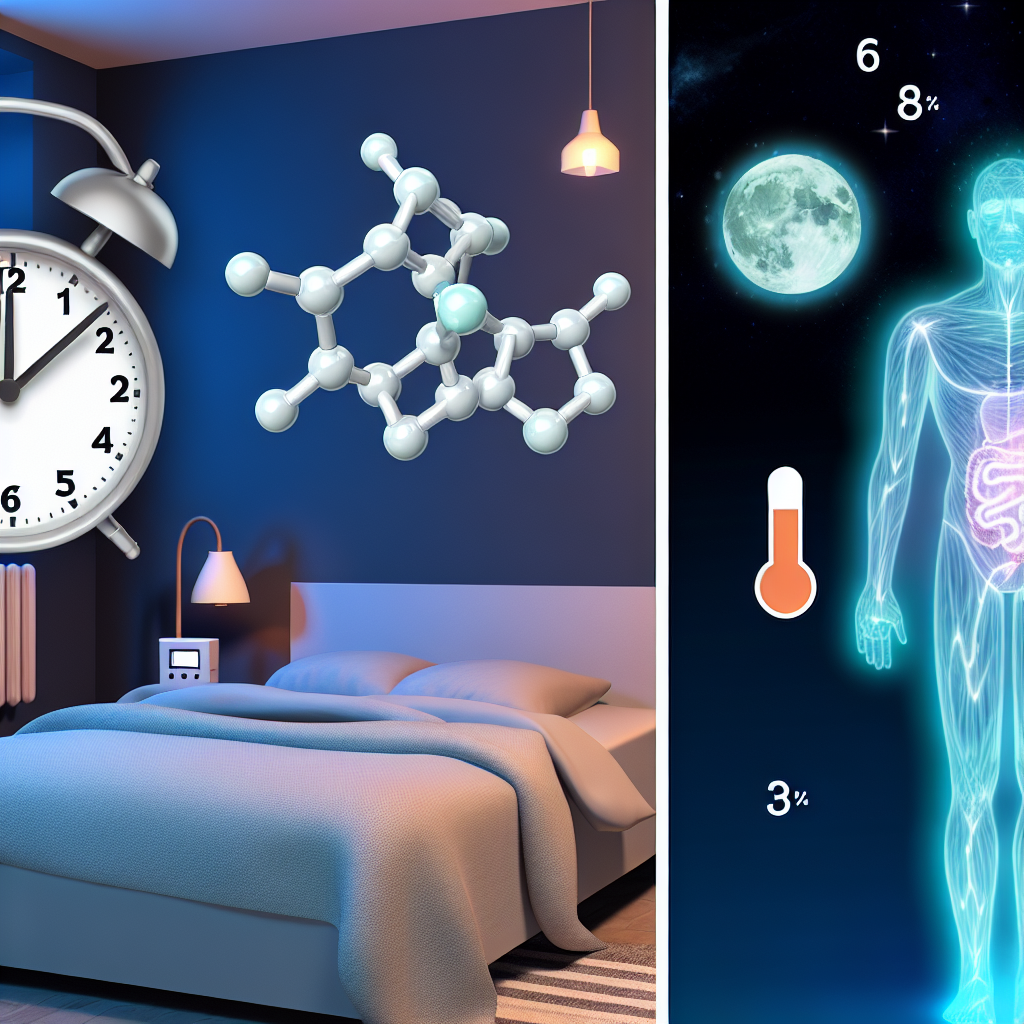Peptide Therapy for Sleep Optimization: Targeted Amino Acid Protocols
Introduction: Unlocking the Power of Peptides for Better Sleep
Sleep is the foundation of overall health, influencing cognitive function, immune response, metabolism, and emotional balance. However, sleep disturbances have become increasingly common, with millions suffering from conditions such as insomnia, sleep apnea, and disruptions in circadian rhythm. While traditional approaches such as sleep hygiene, cognitive behavioral therapy, and medication have proven beneficial, emerging research suggests that peptide therapy may offer a cutting-edge solution for sleep optimization.
Peptides are short chains of amino acids that serve as signaling molecules in the body, regulating various biological functions, including hormonal balance, immune response, and neurological processes. Recent studies indicate that bioactive peptides can influence sleep patterns, improve sleep efficiency, and enhance overall sleep architecture. By directly targeting neuropeptides such as melatonin, orexin, and gamma-aminobutyric acid (GABA), peptide therapy presents a natural and effective approach to addressing sleep disturbances.
Scientific Insights: How Peptide Therapy Enhances Sleep
Research into peptide therapy for sleep optimization has grown significantly in the past decade. Several peptides have demonstrated benefits in improving sleep onset, duration, and quality. Let’s explore some of the most studied peptides linked to sleep health.
Delta Sleep-Inducing Peptide (DSIP): Enhancing Deep Sleep Naturally
Delta Sleep-Inducing Peptide (DSIP) has been studied extensively for its ability to promote deep, restorative sleep. Originally discovered in the 1970s, DSIP plays a crucial role in regulating circadian rhythms and stress response mechanisms. According to a study published in Neuropharmacology, DSIP works by modulating key neurotransmitters such as GABA and serotonin, which are critical for initiating and maintaining sleep cycles ([Neuropharmacology, 2013](https://www.sciencedirect.com/journal/neuropharmacology)). Additionally, DSIP has shown potential in increasing slow-wave deep sleep, an essential stage for physical and cognitive recovery.
Epitalon: The Peptide That Boosts Melatonin for Restorative Sleep
Epitalon is a synthetic peptide derived from Epithalamin, a natural peptide produced in the pineal gland. Its primary mechanism involves stimulating melatonin production, the hormone responsible for governing sleep-wake cycles. Clinical studies suggest that Epitalon can extend total sleep duration, improve sleep latency, and reduce nighttime awakenings. Research published in Biogerontology highlights that Epitalon not only enhances sleep quality but may also provide anti-aging benefits by promoting telomerase activity ([Biogerontology, 2018](https://www.springer.com/journal/10522)).
Orexin Modulators: Regulating Wakefulness for Seamless Sleep Transitions
Orexins (also known as hypocretins) play a significant role in wakefulness and arousal. Overactivity of orexin is often associated with sleep disorders such as insomnia. Peptide-based therapeutics that regulate orexin can support smooth transitions into sleep. Studies from Nature Neuroscience demonstrate that controlled orexin inhibition enhances sleep onset and sustains sleep duration, making it a promising future treatment for sleep disturbance ([Nature Neuroscience, 2020](https://www.nature.com/neuro)).
Clinical Applications: Why Peptides Are a Superior Alternative to Sedatives
Several clinical trials and experimental studies underscore the advantages of peptide therapy over traditional sleep aids. Compared to sedative medications, peptides function as biological regulators rather than direct central nervous system (CNS) depressants. This distinction offers significant benefits, including:
– Enhanced natural sleep cycles, promoting a more restorative rest without residual drowsiness.
– Stress-related insomnia reduction by targeting the hypothalamic-pituitary-adrenal (HPA) axis and promoting relaxation.
– Improved deep sleep phases, essential for muscle recovery, immune function, and cognitive consolidation.
– Minimal side effects, unlike pharmaceuticals that may lead to dependency, tolerance buildup, or withdrawal symptoms.
While peptide therapy for sleep is still evolving, its scientific precision and minimal side effects make it a compelling alternative to conventional treatments.
Conclusion: The Future of Sleep Optimization with Peptide Therapy
As the search for effective and natural sleep aids continues, peptide therapy stands out as a groundbreaking advancement in sleep medicine. Unlike conventional pharmaceuticals, peptide-based treatments align with the body’s intrinsic regulatory systems, addressing sleep disturbances at their root cause.
Peptides such as DSIP, Epitalon, and Orexin modulators offer crucial benefits, optimizing neurochemical and hormonal functions essential for maintaining deep, quality sleep. Scientific research and clinical studies indicate that targeted amino acid protocols have the potential to transform sleep health without the risks associated with sedatives and hypnotics.
However, further research is needed to refine dosing regimens, long-term safety profiles, and efficacy for diverse populations. Before starting any peptide therapy, consulting a medical professional is advisable, as personalized treatment plans tailored to individual physiology provide the best results.
By leveraging the power of bioactive peptides, individuals can explore an innovative pathway toward achieving deep, rejuvenating sleep. As scientific advancements progress, peptide therapy may soon become a widely recognized solution for sleep disorders, offering hope to millions struggling with poor sleep quality and disrupted sleep cycles.
Summary:
Peptide therapy has emerged as a cutting-edge solution for sleep optimization, with peptides like Delta Sleep-Inducing Peptide (DSIP), Epitalon, and Orexin modulators demonstrating the ability to enhance sleep onset, duration, and quality. Unlike traditional sedatives, peptide-based treatments work in harmony with the body’s biology, offering a sustainable and balanced way to optimize sleep without unwanted side effects. As research continues, peptide therapy may become a widely recognized solution for sleep disorders, providing a natural and effective alternative for those struggling with sleep disturbances.

Dominic E. is a passionate filmmaker navigating the exciting intersection of art and science. By day, he delves into the complexities of the human body as a full-time medical writer, meticulously translating intricate medical concepts into accessible and engaging narratives. By night, he explores the boundless realm of cinematic storytelling, crafting narratives that evoke emotion and challenge perspectives.
Film Student and Full-time Medical Writer for ContentVendor.com




